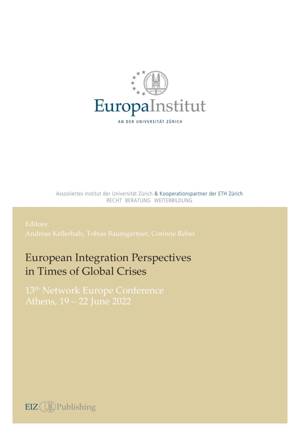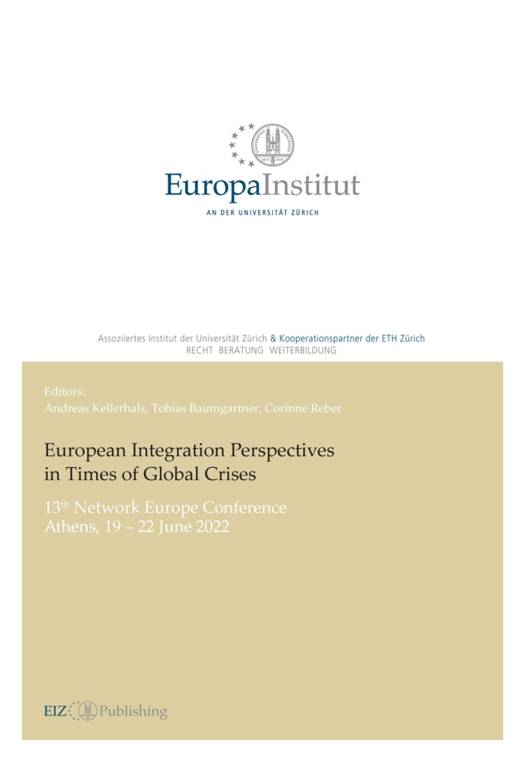
- Afhalen na 1 uur in een winkel met voorraad
- Gratis thuislevering in België vanaf € 30
- Ruim aanbod met 7 miljoen producten
- Afhalen na 1 uur in een winkel met voorraad
- Gratis thuislevering in België vanaf € 30
- Ruim aanbod met 7 miljoen producten
Zoeken
European Integration Perspectives in Times of Global Crises
13th Network Europe Conference, Athens, 19 - 22 June 2022
Andreas Kellerhals
€ 53,95
+ 107 punten
Omschrijving
With its "White Paper on the Future of Europe", the European Commission initiated a debate on fundamental reforms of the Union's structures in 2017. The paper outlined five reform scenarios, ranging from a reduction and refocusing of the EU's competences to deeper integration in the spirit of a United States of Europe. However, the White Paper ultimately had no tangible impact, as none of the proposed scenarios were implemented. Nevertheless, current global challenges - including health crises, climate change, energy resource management, shifting global power dynamics, and related security issues - underscore the growing need for a strong and united Europe. The idea of an "ever closer union", as enshrined in the preamble of the 1992 EU Treaty, could be experiencing a revival. Against this backdrop, the 13th Network Europe Conference examined the significance of the European integration project in times of global crisis. Discussions focused on key policy challenges, the EU's relationships with its eastern and southern neighbors, and its role in relation to global actors such as China and Russia. The publication features contributions from Michael Ambühl, Jelena Ceranic Perisic, Viorel Cibotaru, Christelle Genoud, Christos V. Gortsos, Iris Goldner Lang, Nora Meier, Peter Christian Müller-Graff, Eva Pils, Clara Portela and Peter R. Rodrigues.Network Europe was founded in 2003 by the Europa Institute at the University of Zurich with support from the Swiss government. It serves as a forum for scholarly exchange on legal and political aspects of European integration, bringing together researchers from across Europe.
Specificaties
Betrokkenen
- Auteur(s):
- Uitgeverij:
Inhoud
- Aantal bladzijden:
- 176
- Taal:
- Engels
- Reeks:
- Reeksnummer:
- nr. 226
Eigenschappen
- Productcode (EAN):
- 9783038055679
- Uitvoering:
- Paperback
- Afmetingen:
- 155 mm x 10 mm
- Gewicht:
- 294 g

Alleen bij Standaard Boekhandel
+ 107 punten op je klantenkaart van Standaard Boekhandel
Beoordelingen
We publiceren alleen reviews die voldoen aan de voorwaarden voor reviews. Bekijk onze voorwaarden voor reviews.











